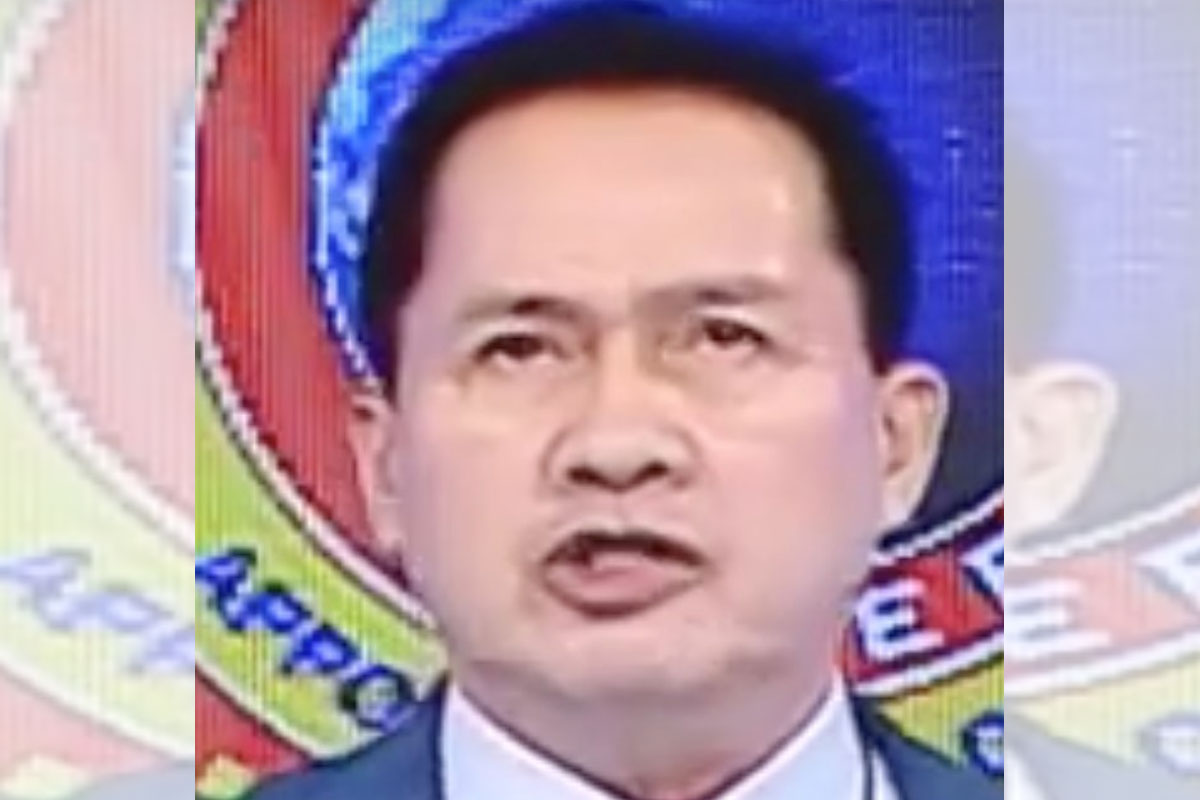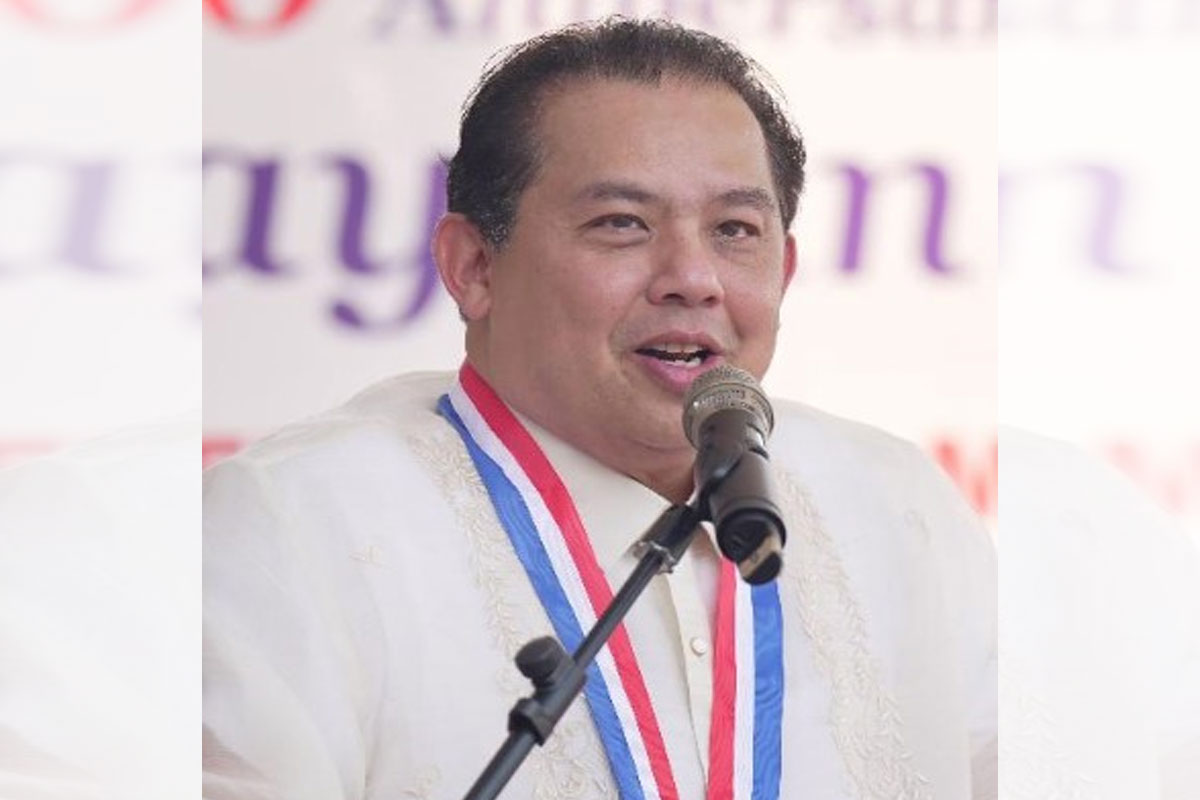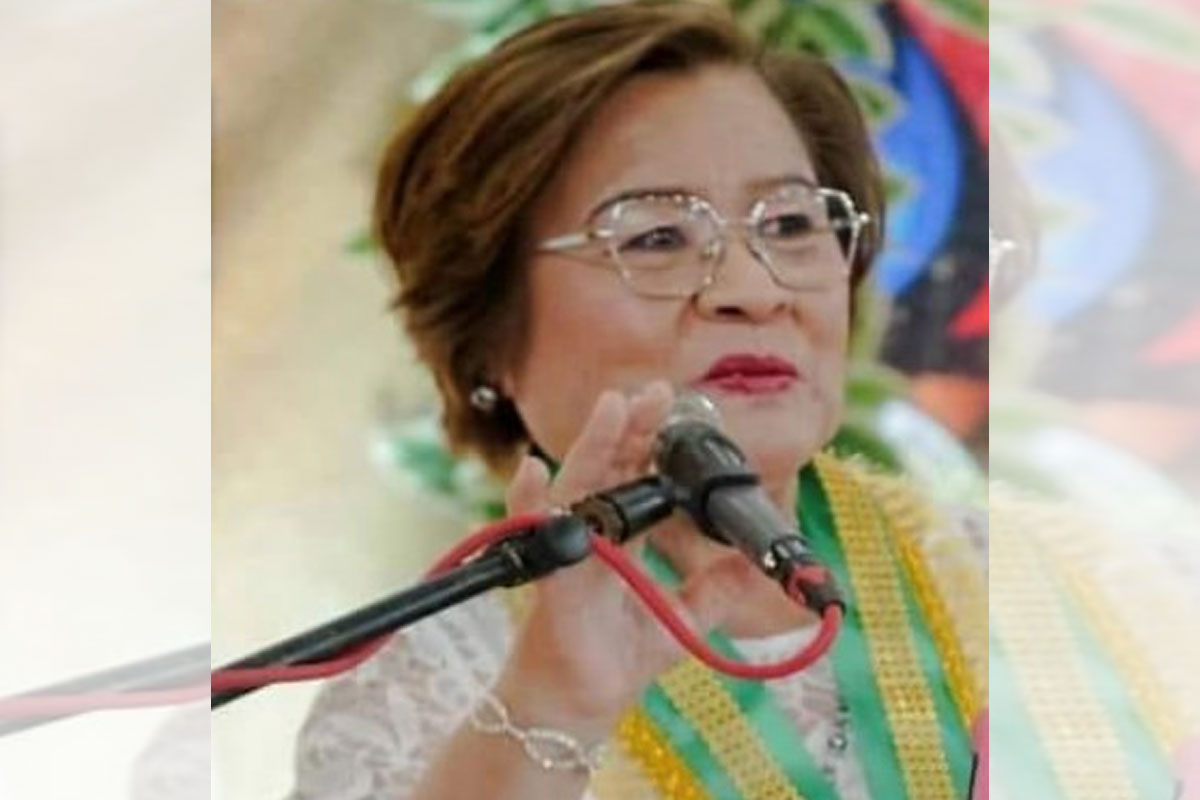
Villafuerte urges pilot-test of devolution in select LGUs
CAMARINES Sur Rep. and former governor LRay Villafuerte on Friday proposed to Malacañan Palace to pilot test in a select group of provinces, cities and municipalities the imminent full devolution of certain powers to local government units (LGUs), instead of implementing it nationwide all at once, to comply with the Supreme Court (SC)’s landmark 2018 ruling on the Mandanas-Garcia case.
“Implementing further devolution initially in pilot provinces, cities and municipalities, rather than doing it in one fell swoop, will help Malacañan Palace get a clearer picture of how this plan would actually work—and where it wouldn’t—across the country before carrying it out on a nationwide scale,” Villafuerte said.
“Pilot-testing it, in support of the SC’s Mandanas-Garcia ruling, would enable the national government (NG) to see how further devolution could—and would—be beneficial to everyone, whether low- or high-income LGUs, given President Marcos’ own view that a one-size-fits-all approach to decentralization wouldn’t work,” Villafuerte, who had served for three successive terms as governor before his election to the House, said.
The president of the National Unity Party (NUP), Villafuerte said that pilot-testing the further devolution plan would help the NG avoid the pitfalls that had mired the decentralization of agriculture and health functions to LGUs in 1992, in keeping with the autonomy provisions of the Local Government Code (LGC) of 1991.
This pilot-testing approach is Villafuerte’s suggestion to President Marcos’ directive to certain government agencies to review the mechanics and implementation of the Mandanas-Garcia ruling issue before his planned issuance before yearend of an Executive Order (EO) implementing further devolution in compliance with this SC decision on a bigger national revenue share for LGUs.
Villafuerte believes that ample devolved funds plus adequate capacity-building training for local executives and their staff will spell the seamless full devolution of certain powers to local governments, as envisaged by the High Tribunal in its 2018 ruling on the Mandanas-Garcia case.
“For the government to guarantee the seamless full devolution of certain powers to LGUs on the watch of President Marcos—in sync with the SC’s landmark 2018 ruling on the Mandanas-Garcia case—we need to steer clear of the omissions in the implementation of the LGC of 1991 that messed up the transition to greater political and fiscal autonomy for our local governments,” Villafuerte said.
“And the national government could do this by first implementing further devolution on a pilot basis in selected LGUs,” he said.
Villafuerte lauded the plan of Mr. Marcos to issue an EO by December 2023 calling for even greater local autonomy, which the President aspires to remain true to the spirit and intent of the SC’s Mandanas-Garcia ruling on the higher LGU share of national tax collections.
But the former governor added that “the government needs to eschew the pitfalls in our flawed 1992 experience in local autonomy and decentralization by providing ample funds to LGUs, and adequate capacity-building programs for provincial, city and municipal executives and their staff, to spell the seamless takeover by our localities of certain major programs and projects now being handled by the NG.”
He said such adequate resources and manpower training for all local governments are a must, in light of the disparate absorptive capacities of provinces, cities and municipalities, which means not all LGUs will be ready and prepared to absorb additional NG tasks and functions, possibly beginning next year.
Villafuerte is hoping that the President’s planned EO on greater local autonomy would entail “a calibrated approach cognizant of the diverse or dissimilar capacities of first- to sixth-class provinces, cities and municipalities to carry out NG tasks set for delegation to them.”
He is suggesting a calibrated or staggered decentralization of NG functions to LGUs, if not the further deferment altogether of some of these tasks, particularly for local governments with relatively lower incomes and weaker absorptive capacities, to completely take over the additional tasks from the central government as early as 2024.
The former CamSur governor pointed out that President Marcos himself had said that a “one-size-fits-all” approach to full devolution wouldn’t work, “given that not all LGUs are capable of carrying out at the same time the functions that are supposed to be devolved to them under the Local Government Code, and in support of the Mandanas-Garcia ruling.”
“We are hopeful that President Marcos’ concern about the distinct administrative, fiscal and technical capability of each and every LGU to absorb and carry out public services now handled by the NG would be at front and center of the would-be EO on full devolution of certain powers now wielded by the central government,” Villafuerte said.
“The hoped-for recognition under the President’s proposed EO of such disparate absorptive capacities of first- to sixth-class LGUs would ensure the smooth transition of tasks or powers to them—and ensure a more harmonious coordination and partnership between Malacañang and local governments in the delivery most especially of frontline services to our people and the pursuit of the Marcos administration’s medium-term development agenda,” he added.
This SC ruling in 2018 on greater autonomy and more resources for LGUs was based on the separate petitions by Governor Hermilando Mandanas and the late Bataan Gov. and Rep. Enrique Garcia Jr. asking the High Tribunal to compute the annual 40% Internal Revenue Allotment (IRA) share of LGUs not based merely on Bureau of Internal Revenue (BIR) collections but to also include other national taxes collected, such as those by the Bureau of Customs (BOC).
Following the High Tribunal’s ruling, the IRA was renamed the National Tax Allotment (NTA), in light of the expanded computation of the 40%-share of LGUs.
Then-President Duterte issued EO 138 in 2021 with the goal for the government to execute the Mandanas-Garcia ruling in 2024 or earlier.
However, President Marcos had put EO 138 on hold and ordered the Palace’s Commission on Devolution (ComDev) to study a delayed timeline for turning over certain NG tasks to LGUs.
In a recent engagement with the League of Provinces of the Philippines (LPP), President Marcos said: ““It does not mean na walang ma-de-devolve. Mayroong mga ma-de-devolve na function.
Pero ang kaibahan dito, ‘yung pag-devolve ng function may kasabay na item, may kasabay na funding, may kasabay na training,” he added.
The President said, “That is what we are trying to calibrate now—how do we do that so that the local governments are able to perform their functions and are able to provide the services to their constituents that are expected and that are mandated by the Local Government Code.”
Villafuerte welcomed the assurance by the President of greater assistance to LGUs, including the provision of more funds and training programs for local governments to help them carry out the would-be devolved tasks, as full devolution requires them to take care of operating social services like agriculture, health and connectivity in their respective localities.
He noted that many LGUs will likely be overwhelmed by the new tasks that are to be handed over to them under this further devolution plan.
Citing a study by the Philippine Institute for Development Studies (PIDS), Villafuerte said a policy of “heterogeneity in capacity”—as described by the PIDS—in lieu of an inflexible or one-size-fits-all devolution plan, should be adopted as LGUs would have assorted starting points when they begin implementing the would-be decentralized functions.
Villafuerte said the President certainly knows how difficult full devolution will be for local officials, despite the additional funding for LGUs from the new NTA system, considering that he had, at one time or another, served as vice governor, governor and congressman of Ilocos Norte.
Villafuerte explained that in keeping with the devolution and decentralization mandate of the 1987 Constitution, the Congress wrote Republic Act (RA) 7160 or the LGC of 1991 that devolved the following year the NG’s health and agriculture functions to the LGUs.
In health, the maintenance of barangay health centers was devolved to barangays; the implementation of primary health, maternal and child care along with the purchase of medical supplies and equipment, among others, were assigned to municipalities and cities; and hospitals and tertiary health services were turned over to provinces.
However, the implementation of such tasks by the LGUs hit a snag because, as pointed out in a PIDS study by director Janet Cuenca of the Bureau of Trade and Industrial Policy Research (BTIPR), there was a mismatch between the amount of IRA or devolved funds to local governments and the total cost of devolved funds (CODEF).
This PIDS study concluded that many LGUs were not ready for devolution, because on top of the low fiscal capacity of the local governments, the managerial capability of the local executives was not considered, as there were no capacity-building programs for them and their local health personnel before decentralization was implemented in 1992.
The subsequent underfinancing of health services led to their deterioration, according to the PIDS study by Cuenca, as manifested in “understaffing, low utilization rates, un-maintained infrastructure and un-repaired or un-replaced equipment.”
In a separate study, former National Economic and Development Authority (NEDA) undersecretary Joseph Capuno and former dean Orville Solon of the University of the Philippines (UP) School of Economics dean said the disparity in financial status between cities, on one hand, and provinces and municipalities, on the other, resulted to “inequities in decentralization” of health services, as the combined tax revenues of cities, in 1993, was 5 times as much as that of provinces and 20 times more than that of municipalities.
As for agriculture, the LGUs inherited the general agriculture extension services of the Bureau of Agriculture Extension (BAEx), which was subsequently replaced by the Agricultural Training Institute (ATI).
Villafuerte said that in a paper, ATI director Asterio Saliot pointed to the lack of an institutional system of financial transfer for agricultural extension.
“When the BAEx was abolished, the central government lost a mechanism of working with the devolved agricultural extension service. On the other hand, the LGU, the devolved agricultural extension does not have an organizational set-up for the agricultural extension through which assistance in extension can be achieved,” Saliot said.























